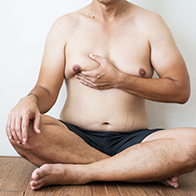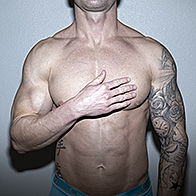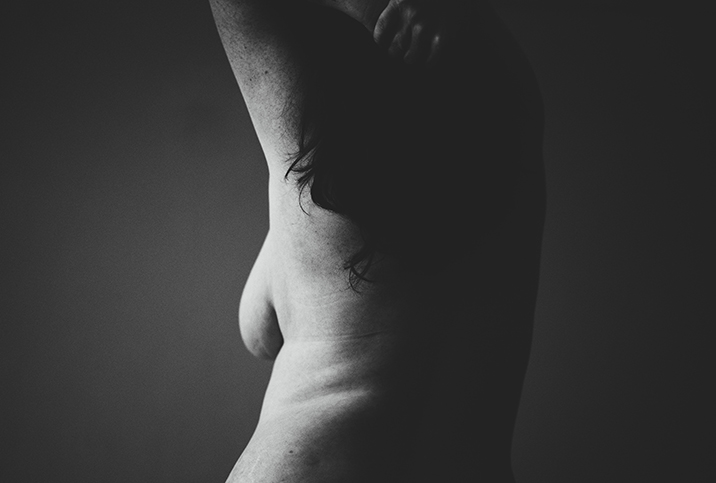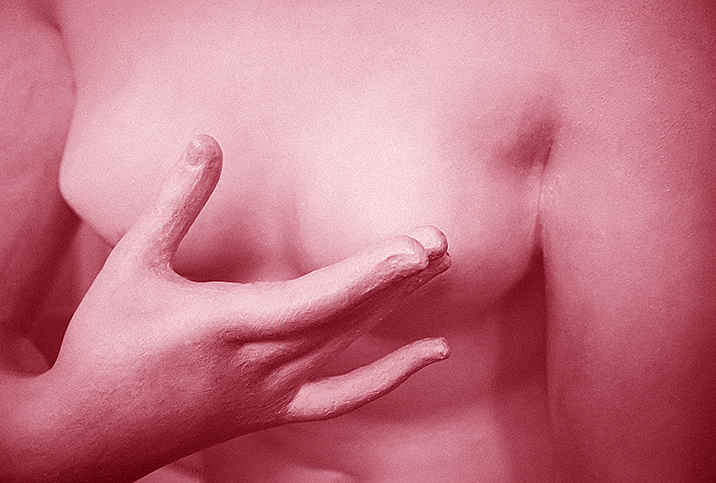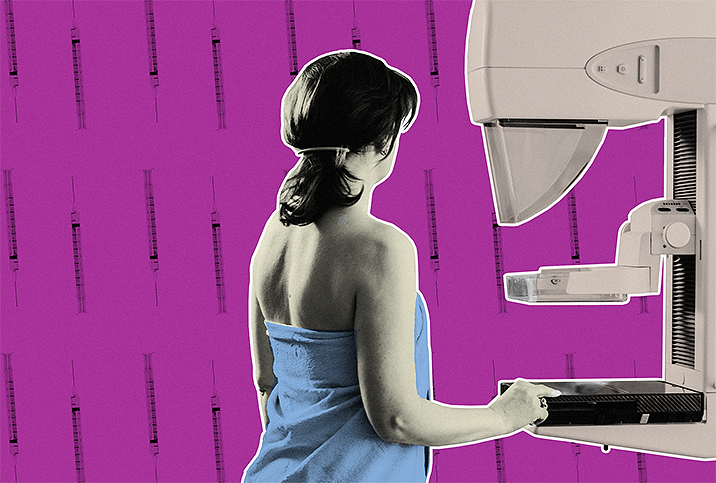Destigmatizing Male Breast Cancer
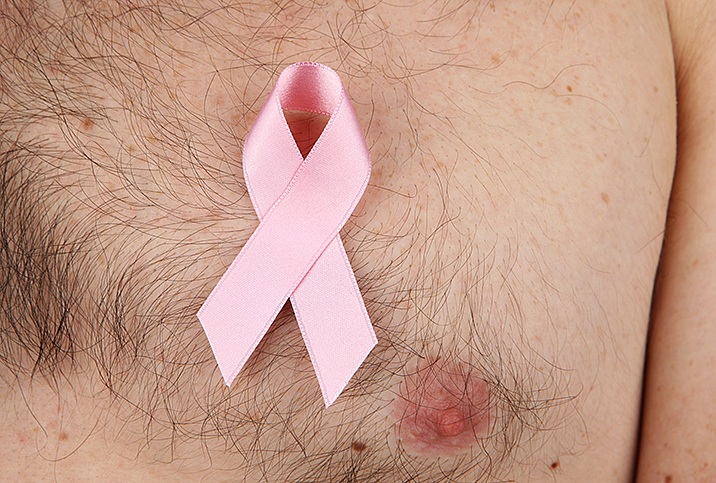
In spring 2002, Owen Toale, then in his early 60s, was on a weekend getaway to Niagara Falls with his family. As he walked out of his hotel room's shower, his wife saw something on his chest. "You have this lump there," she told her husband, "and an inverted nipple."
The diagnosis that soon followed surprised Toale on more than one level. "I had never heard of any male having breast cancer," he said in an interview.
He wasn't the only one. A 2010 study published in the American Journal of Nursing found nearly 80 percent of participants were unaware men's breast cancer (MBC) exists. The 28 adult men surveyed for the study had no history of breast cancer, but all had at least one maternal blood relative with the disease. Though they were at higher risk for developing MBC because of their family history, all reported their doctors had never discussed the disease with them.
"'Who are you kidding?'" Toale recalled people saying when he told them of his diagnosis. He offered to show them his scars.
'I've seen many men who notice a lump in their breast and initially write it off...because breast cancer is thought of as exclusive to women.'
For decades now, men with breast cancer have had to overcome more than a disease. They've also had to contend with many of the very breast cancer awareness efforts that are supposed to educate the public about the disease—efforts whose universally rosy color palette, critics say, makes breast cancer seem exclusive to women.
"I've seen many men who notice a lump in their breast and initially write it off, waiting until it gets bigger and wasting valuable time, because breast cancer is thought of as exclusive to women," said Michael Zeidman, M.D., a breast cancer specialist at Mount Sinai Hospital in New York City. One small study of male breast cancer found the average time between the first symptom and diagnosis was 19 months.
"The whole pink thing—don't even get me started," said Linda Holden of Burlingame, California, whose husband, Bob, died of metastatic breast cancer. Bob Holden turned 58 in January 2020, and one week later, he went into hospice.
Since its inception in 1985, Breast Cancer Awareness Month has done immeasurable good—studies show it has led to an increase in detection. But it also has a cadre of critics, many of them women and some of whom have launched men's breast cancer awareness campaigns, including the Men's Breast Cancer Consortium and the Male Breast Cancer Coalition. Breast Cancer Haven turns its pink social media channels blue during Men's Health Week, in June.
Such groups have their work cut out for them. One reason men's breast cancer has been obscured is that it is obscure. This year, about 2,650 men are expected to be diagnosed with MBC and an estimated 530 men will die from the disease, according to the American Cancer Society.
Those 2,650 men amount to only 1 percent of all breast cancer cases. Toale felt out of place in support groups. "I was the only male in the room," he said. "I was out on an island as far as information was concerned."
In the minds of many men who have been diagnosed with breast cancer, there's still a stigma—they are reluctant to say they have a "woman's disease."
Efforts to destigmatize and raise awareness of men's breast cancer are making progress, however. "As time goes on, more and more high-profile people come out, either having breast cancer or having a male relative with breast cancer," Toale said, "and it's become, I wouldn't say commonplace, but more people understand it now."
"We've seen the change firsthand," Male Breast Cancer Coalition founder Cheri Ambrose said, "with men now being included in clinical trials and research, and men being included in the labeling of breast cancer drugs."
This year, for the first time, a sitting U.S. president's Breast Cancer Awareness Month proclamation specifically mentioned men. "We stand with the courageous women and men who have been diagnosed with breast cancer and honor those who have lost their battle to this terrible disease," President Joe Biden said in September.
The cost of breast cancer is high for men and women alike. It's the costliest cancer to treat, according to the Centers for Disease Control and Prevention (CDC). The human toll is even higher.
"Besides the grief at the end, there's anticipatory grief," Linda Holden said. "You grieve things along the way, little things that he couldn't do anymore."







